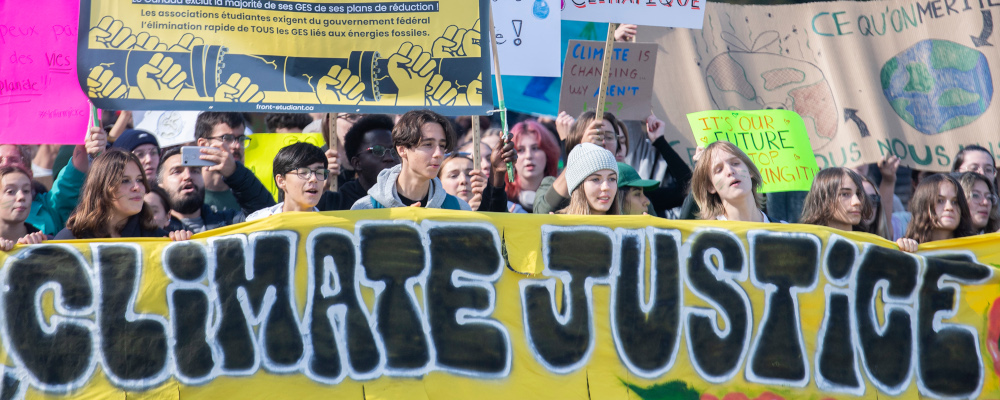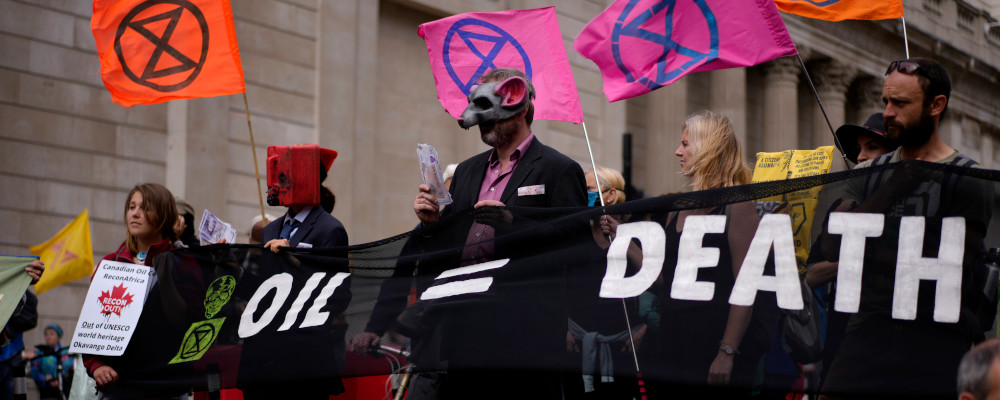It was recently announced that the 29th Conference of the United Nations Framework Convention on Climate Change (COP 29) will be held in Baku, Azerbaijan later this year. Following COP 27 in Egypt and COP 28 in the United Arab Emirates, it represents the third consecutive climate change conference hosted by an authoritarian oil and gas-producing state.
One could point out the obvious hypocrisy on the part of the global climate establishment, but that seems almost too easy. Perhaps the more interesting question is why these countries want to host the conferences in the first place. It’s not because they’re motivated by a deep will for global betterment. It’s because they understand that today’s economics, particularly in energy and natural resources, is heavily shaped by climate policy.
Yet the role of economics in climate change action has been somewhat subordinated here in the West in favour of the tortured theme of climate justice. We see for instance climate advocates in Western countries engaging in demonstrations and displays of rebellion that historically would have been used to protest major human rights issues.

In Canada, thoughtful climate action similarly seems to be impossible without the inclusion of social justice, including issues of race, gender, and sexuality. Last year a private member’s bill (Bill C-226) which calls for a “national strategy to assess, prevent and address environmental racism and to advance environmental justice” passed third reading in the House of Commons.
On the international front, the International Institute of Environment and Development has championed the goal of queering climate justice, including how “climate justice has drawn from and built on ideologies from different right-based movements…including civil rights, queer rights, and women’s rights.” We can also see this trend in Western business and financial institutions as the environmental, social, and governance (ESG) movement promotes investments that are valued based on their environmental and social effects. Questions about profitability or broader economic value can be subordinated to social justice or climate considerations.
The net result is that a lot of contemporary climate policy seems to be driven more by emotion than hard-headed thinking including cost-benefit analysis, the relative costs of different approaches, and a lot of deficit-financed spending by Western governments. These actions may lower emissions but at tremendous economic costs.
Countries like Egypt, the UAE, and Azerbaijan are thinking about climate change quite differently. They understand that global action on climate change is influencing real economic change. These developments are now manifesting themselves for instance in global commodity markets and future investment strategies.
These countries may not be motivated by climate action per se, but even a strictly economic lens requires that they take note of these trends. Political tools like the COP meetings are a means for them to influence these developments. By hosting these climate meetings, countries like Azerbaijan nudge global climate policy in a more pragmatic position regarding hydrocarbons and green financing. They can also leverage political capital and an insider position to remain key stakeholders in a rapidly changing global economy, including positioning themselves as financiers of the energy transition.
Canada and other Western countries would be well served by shifting their own thinking on climate change to a more hard-headed approach. Policymakers cannot forget that the greatest reductions in carbon emissions have come from technological shifts driven by market forces, not through virtue signaling or social activism.

In the United States, increased fracking led natural gas to displace higher-emitting coal which has caused the largest decline in carbon dioxide equivalent emissions of any country over the last 15 years. From 2005 to 2021, Ontario similarly saw the greatest reduction in carbon emissions by any province due to the closure of coal-fired power plants, which was largely replaced by nuclear and a combination of natural gas and non-hydro renewables. Climate progress requires effective cost-benefit analysis that cooperates with natural market mechanisms.
Re-centering policy development on the economics of climate change is likely to resonate more with the new climate dialogues taking place in countries like Egypt, the UAE, and Azerbaijan. This trend has shown us that these nations are ready to come to the table and discuss our energy and climate future but within a framework that recognizes that these are fundamentally economic questions.
This is the best means to achieve climate progress at the lowest cost and in turn to maintain public support for the types of changes that we’ll need to pursue in the coming years. The West needs to stop conflating climate progress with the trappings of social progressivism and refocus on how the dismal yet ultimately valuable science can be best integrated into climate policymaking.
Recommended for You

The Notebook by Theo Argitis: Mark Carney’s first major tests

‘There can be massive policy investments made in AI literacy’: Five takeaways from John Stackhouse, Janice Gross Stein, and Jaxson Khan on the race for AI adoption in Canada

Brace for impact: something big is about to happen to the news in Canada

Michael Bonner: Are we witnessing the last gasp of Iran’s Islamic Republic?



